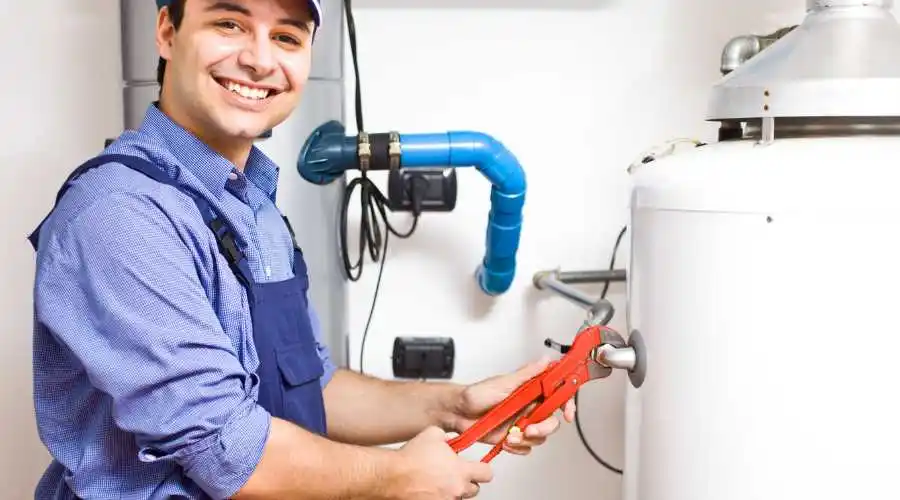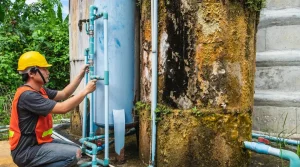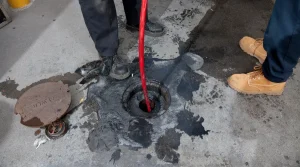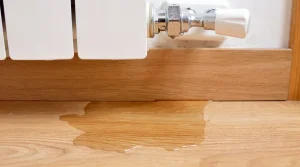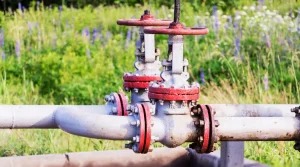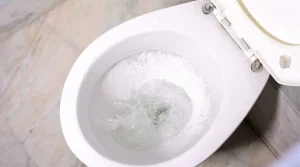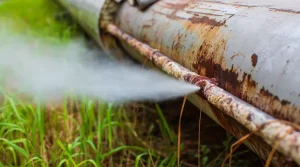Your water heater may not be the most glamorous appliance in your home, but it’s undoubtedly one of the most crucial. The unsung hero provides you with hot showers and warm water for various daily tasks. But how can you ensure it remains dependable for years to come? In this straightforward guide, we’ll reveal the secrets to maximizing your water heater’s lifespan, whether in North Bergen, NJ, or anywhere else.
Key Takeaway
- Types of Water Heaters: Understand the four main types: Electric, Gas, Tankless, and Hybrid.
- Maintenance is Key: Regular check-ups and flushing can extend the life of your water heater.
- Know When to Repair vs. Replace: Be aware of signs that indicate repair needs or replacement.
- Professional Help: Always consider hiring a professional for diagnostics and maintenance.
Getting Acquainted with Your Water Heater
Before we jump into maintenance tips, let’s take a moment to understand the different types of water heaters. This knowledge will empower you to make informed decisions about maintenance and potential replacements.
1. Electric Water Heaters
Electric water heaters run on electricity, making them eco-friendly as they don’t use gas.
Pros:
- Environmentally conscious.
- User-friendly operation.
Cons:
- May require occasional part replacements.
- Gas Water Heaters
Gas water heaters depend on natural gas for heating and are often budget-friendly.
Pros:
- Cost-effective.
- Typically reliable.
Cons:
- Efficiency varies between models.
- Periodic flushing is necessary for maintenance.
3. Tankless Water Heaters
Tankless water heaters heat water only when needed, saving space compared to traditional tanks.
Pros:
- Highly efficient.
- Compact and space-saving.
Cons:
- Initial installation can be complex.
- May come with higher upfront costs.
4. Hybrid Water Heaters
Hybrid water heaters combine electricity and heat pumps for energy-efficient heating.
Pros:
- Energy-efficient.
- Environmentally friendly.
- Eligible for rebates in some areas.
Cons:
- Initial costs might be higher.
The Golden Rule: Water Heater Maintenance
Irrespective of your water heater type, regular maintenance is the key to an extended appliance life. Here’s your simple checklist:
Annual Check-Ups
Consider scheduling an annual check-up with a professional plumber. They will inspect your system, identify potential problems early, and perform necessary maintenance tasks.
Flushing
Regular flushing benefits both electric and gas water heaters. It helps remove sediment buildup, boost efficiency, and preserve your heater. Sediment can lead to overheating and system failures, so this step is crucial.
Temperature Setting
Maintain your water heater temperature between 120°F and 140°F. This range is sufficient for most household tasks and can prevent scalding while saving energy.
Insulation
If you live in a cooler climate, insulating your water heater and its pipes can help maintain water temperature and reduce energy consumption. Insulation blankets are an affordable way to enhance efficiency.
Anode Rod Inspection
For tank water heaters, inspect the anode rod every few years. This sacrificial rod helps prevent tank corrosion. If it’s significantly corroded, it should be replaced to extend the tank’s life.
Check for Leaks
Regularly inspect your water heater for leaks. Look around the base and connections for any signs of moisture. Early detection can prevent more significant issues.
When Repairs Are the Only Answer
Facing a water heater hiccup doesn’t always warrant replacing the entire unit. Sometimes, targeted repairs can save you time and money. Here’s a breakdown:
For Gas Water Heaters
Control Valve or Thermal Ignitor: Repairs are often the solution if these parts malfunction. They are usually less expensive to replace than the entire unit.
For Electric Water Heaters
emperature or Pressure Release Valve: Replacing this valve can resolve issues without requiring a complete unit replacement. It’s crucial for safety, as this valve prevents excessive pressure buildup.
Red Flags replace your water heater
While repairs can often do the trick, some warning signs suggest it’s time to invest in a new water heater:
- Leaks: The presence of leaks at the top or bottom of the unit might signal a significant problem.
- Strange Noises: Unusual sounds from your water heater could indicate trouble. Rumbling or popping noises can suggest sediment buildup or other issues.
- Lack of Hot Water: Consistently insufficient hot water might indicate that it’s time for an upgrade. If your unit struggles to meet your needs, continuing repairs may not be cost-effective.
- Rusty Water: If rusty water flows from your taps, internal tank corrosion may be to
The Wisdom of Seeking Professional Help
Seeking professional help for your plumbing needs is a prudent decision that can’t be stressed enough. Professional plumbers bring a wealth of experience and knowledge, making them your most dependable allies in maintaining a healthy plumbing system. Their expertise allows them to diagnose plumbing issues accurately, while their cutting-edge tools unveil hidden problems that might escape the untrained eye.
Regarding solutions, professional plumbers not only fix issues but also offer cost-effective remedies tailored to your plumbing needs. They differentiate between essential repairs and unnecessary expenses, ensuring you make the most economical choices to protect your home and finances. In essence, entrusting your plumbing to professionals is an investment in its longevity and efficiency, ultimately providing peace of mind that your plumbing system is in capable hands.
Frequently Asked Questions (FAQ) Replace your water heater
1. How often should I flush my water heater?
Flushing your water heater once a year is generally recommended. However, if you have hard water, you may want to flush it more frequently—every six months is ideal to prevent sediment buildup.
2. What are the signs that my water heater needs replacing?
Signs include leaks, strange noises, rusty water, and insufficient hot water. Consider a replacement if your unit is over 10 years old and showing these signs.
3. Can I repair my water heater myself?
While some minor repairs can be DIY, hiring a professional plumber is usually best. They have the expertise to safely diagnose and fix issues without risking further damage.
4. How long does a water heater typically last?
Most water heaters last between 8 to 12 years. Regular maintenance can extend their lifespan, but aging components will eventually necessitate replacement.
5. What type of water heater is the most energy-efficient?
Tankless and hybrid water heaters are generally the most energy-efficient options, as they only heat water as needed and reduce standby energy loss.
6. Is it worth upgrading to a tankless water heater?
A tankless water heater can be a worthwhile investment if you frequently run out of hot water or have a small home. They offer endless hot water and can save on energy costs in the long run.
7. How can I improve my water heater’s efficiency?
Maintain the recommended temperature setting, insulate your unit, flush it regularly, and inspect the anode rod. These steps can help maximize efficiency and lifespan.
8. Do I need a permit to replace my water heater?
Many localities require a permit for water heater replacement, especially for gas units. Always check with your local regulations before starting any installation.
Your water heater may not receive the deserved accolades, but it warrants your attention and care. By understanding your water heater type and embracing regular maintenance, you can extend its life and enjoy reliable hot water for years. If you’re facing water heater woes or wish to schedule maintenance, don’t hesitate to contact us at BJC Plumbers North Bergen. We’re available 24/7 for expert advice and to keep your water heater running seamlessly.

